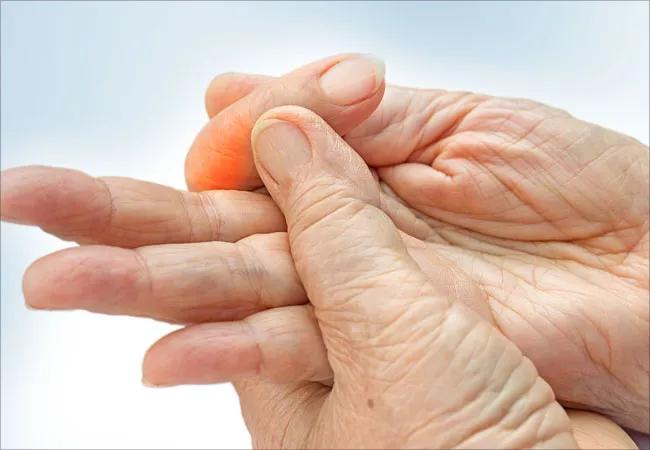Advertisement
The Short Answer from a rheumatologist

A. People tend to bend their fingers up and down without much thought. But if you have a condition called “trigger finger,” this can be very painful. As you try to unbend an affected finger or thumb, the digit locks into place like a trigger — oftentimes clicking painfully as you extend it.
Advertisement
Cleveland Clinic is a non-profit academic medical center. Advertising on our site helps support our mission. We do not endorse non-Cleveland Clinic products or services. Policy
The cause of this problem? Inflammation of tendons located within a protective covering called a tendon sheath. While a tendon usually glides easily through its sheath due to a lubricating membrane called synovium, an inflamed and swollen or nodular tendon can prevent this motion. As a result, moving the finger or thumb may pull the inflamed portion through a contracted tendon sheath, making it snap or pop.
Symptoms of trigger finger may include:
Although highly repetitive or forceful use of the finger or thumb can cause trigger finger, medical conditions such as rheumatoid arthritis, gout or diabetes may affect the tissues and cause trigger finger. Treatment begins with limiting activities that aggravate the condition. Your physician may recommend wearing a splint on the affected finger or thumb to restrict joint movement.
If symptoms persist, you may benefit from nonsteroidal anti-inflammatory drugs (NSAIDs), such as ibuprofen or naproxen. Steroid injections of the tendon sheath usually result in significant relief in the majority of patients.
Advertisement
If trigger finger does not respond to conservative measures or consistently recurs, surgery may be recommended to reliever the tendon sheath and restore movement.
— Steven Maschke, MD, orthopedic surgeon
Advertisement
Learn more about our editorial process.
Advertisement

Vitamin D is an umbrella term for both D2 and D3 — both help keep your bones and immune system strong

These creams that you apply to your skin can actually help reduce localized pain, swelling and inflammation

This satisfying, involuntary act of yawning and stretching helps release tight muscles

If soaking your feet, disinfecting your shoes and making lifestyle changes don’t do the job, it’s time to talk to a doctor

Genetics, hormones, medications and stress are just a few reasons your feet could be extra funky

While an ultrasound shows your muscles and tendons, an MRI also shows your joint cartilage, bones and heart chambers

Sitting for long hours, like at your desk job, can make your butt sag — among other effects

Research doesn’t show any benefits to wearing copper bracelets — but your experience may vary

If you’re feeling short of breath, sleep can be tough — propping yourself up or sleeping on your side may help

If you fear the unknown or find yourself needing reassurance often, you may identify with this attachment style

If you’re looking to boost your gut health, it’s better to get fiber from whole foods